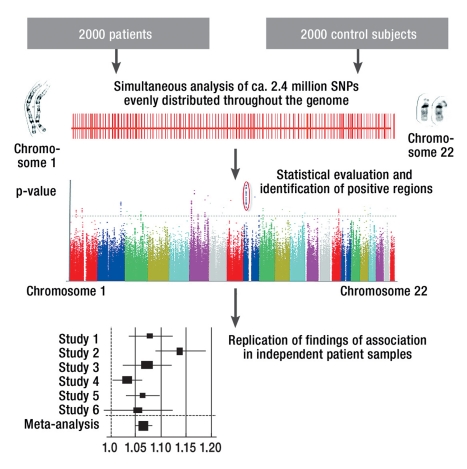Figure 1.
The principle of genome-wide association studies
With the aid of DNA chips, the allele frequencies of up to 2.4 million polymorphisms are statistically compared in samples of patients and normal control subjects.
If markers in a particular chromosome segment are present in significantly different frequency, this finding is replicated in further samples. Then, if a highly significant difference between cases and controls is found (p < 5 × 10–8), the finding is considered relevant, even though multiple statistical tests have been applied. At present, only the SNPs (single nucleotide polymorphisms) on the autosomal chromosomes, i.e., chromosomes 1 through 22, are analyzed in genome-wide association studies. The sex chromosomes X and Y are not included in the analyses, as there is no standardized analytic technique for these chromosomes to date.

